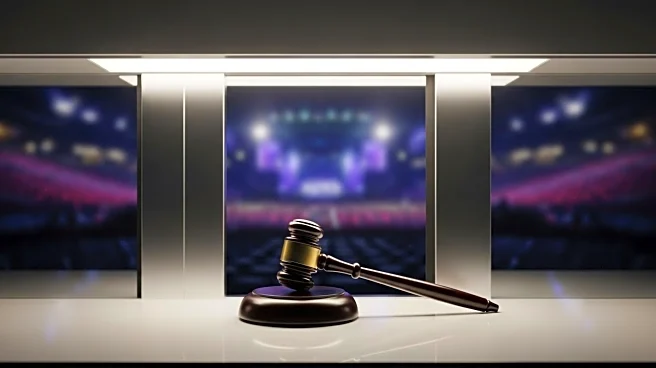What is the story about?
What's Happening?
The Federal Trade Commission (FTC), along with state prosecutors, has filed a lawsuit against Live Nation Entertainment and Ticketmaster. The lawsuit accuses these companies of allowing brokers to purchase event tickets in bulk and resell them at inflated prices, which has cost consumers billions of dollars. The FTC alleges that Ticketmaster's public stance against brokers contradicts its private acknowledgment that its business model benefits from brokers exceeding ticket limits. The lawsuit, filed in the U.S. District Court for the Central District of California, also claims that Live Nation and Ticketmaster engaged in 'bait-and-switch pricing' tactics, advertising lower ticket prices than those actually available to customers. The FTC's action is supported by attorneys general from several states, emphasizing the need for fair ticket pricing and competition in the market.
Why It's Important?
This lawsuit highlights significant concerns about monopolistic practices in the live entertainment industry, particularly regarding ticket sales. With Ticketmaster controlling a substantial portion of ticket sales for major events, the allegations of deceptive practices could lead to increased scrutiny and potential regulatory changes. Consumers, who have spent billions on tickets, stand to benefit from a more transparent and competitive market. The lawsuit also underscores the importance of fair pricing and competition, which could empower artists and venues with more choices and fairer terms, ultimately benefiting fans with better value and options.
What's Next?
The lawsuit could lead to significant changes in how tickets are sold and resold, potentially impacting the business models of Live Nation and Ticketmaster. If the FTC succeeds, it may result in stricter regulations and oversight of ticket sales, promoting fair competition and transparency. Other ticket sellers and advocacy groups are likely to support these changes, pushing for a healthier ticketing ecosystem. The outcome of this legal battle could set a precedent for future cases involving monopolistic practices in the entertainment industry.















